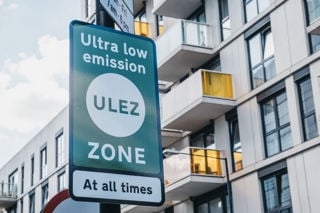Replacing fuel duty and vehicle excise duty (VED) with a pay-as-you-drive taxation scheme is opposed by fewer than one in five people (18%), a survey suggests.
Almost half (49%) of respondents to the survey of more than 3,000 people, conducted by the Campaign for Better Transport, would support the change in motoring taxation.
Pay-as-you-drive: the British public’s views on vehicle taxation reform also found that three out of five people (60%) believe vehicle taxation needs reforming.
What is more, support for reform grew among those surveyed by eight percentage points (from 41% to 49%) once they were presented with options for how such a scheme could be delivered, showing that some initial concerns around road pricing can be overcome.
Paul Tuohy, chief executive of Campaign for Better Transport, said: “The need to reform vehicle taxation is becoming increasingly clear as we rightly move away from petrol and diesel vehicles in order to tackle climate change.
“What this research shows is that road pricing, far from being an unacceptable concept to the public, is in fact one that the majority of people believe can be implemented fairly and could in fact save most drivers money.”
Campaign for Better Transport’s report found that people thought a well-designed pay-as-you-drive system would be a fairer and more transparent way to tax motoring because it would include EV drivers and could ensure people who drive less, pay less.
Those polled thought that a scheme which included measures such as a tax-free mileage allowance would enable targeted tax cuts to specific groups, like those who have to drive for work, and would mean people who live in places where there are no public transport alternatives wouldn’t be unfairly penalised, either through a higher tax-free allowance or being charged a lower rate.
A pay-as-you-drive scheme would have the added benefit of bringing an immediate tax cut to drivers with the removal of VAT on fuel duty, it said.
The report also found that a number of measures would further increase public support for a pay-as-you-drive scheme including:
A commitment to raise no more than fuel duty and vehicle excise duty do.
Ensuring tax intake keeps pace with the increased take-up of zero-emission vehicles as the main reason for reform.
A government campaign to introduce the scheme which focuses on the ‘drive less – pay less’ benefits to help with the cost-of-living crisis.
A proportion of the revenue to be set aside for road maintenance and public transport improvements.
An arm’s length body to set and review emission standards and charging rates annually.
Silviya Barrett, head of research at Campaign for Better Transport, who wrote the report, said: “Our research found that many of the common concerns around road pricing, things like protecting people’s privacy and not penalising people who need to drive, can be overcome with a well-designed pay-as-you-drive scheme.
“In fact, support for road pricing increased among the survey group over the course of the research once the scheme was fully explained, proving that public concerns about road pricing can be overcome.”
Steve Gooding, director of the RAC Foundation, added: “The question of what does or doesn’t make a policy like road user charging publicly acceptable is one of endless fascination and extensive speculation.
“This report genuinely shines some light on the issue and reveals the way that people’s opinions can be informed and influenced by giving them the opportunity to develop a better understanding of the issues.”
Campaign for Better Transport’s report concludes that a pay-as-you-drive system could progress in stages from a pilot for electric vehicles, to replacing fuel duty and vehicle excise duty with a fully ‘smart’ scheme with a varied pricing structure, which would replace any pre-existing local road charging schemes and provide the ability for people to opt out and pay a higher set annual charge instead.
Campaign for Better Transport is now calling on the Government to establish a cross-party commission before the next general election to help secure agreement on the case for reform with a view to having a pay-as-you-drive scheme ready for implementation by 2025.
* Don't miss the Smart Transport National Conference which includes a breakout session titled 'Road user charging and electrification'.
The Treasury urgently needs a plan to plug a revenue gap worth billions of pounds because of vehicle electrification and this breakout session will explore how a road user charging scheme could be implemented in the UK.
Speakers include Silviya Barrett, head of research at Campaign for Better Transport, who will present findings from the report.
























Login to comment
Comments
No comments have been made yet.